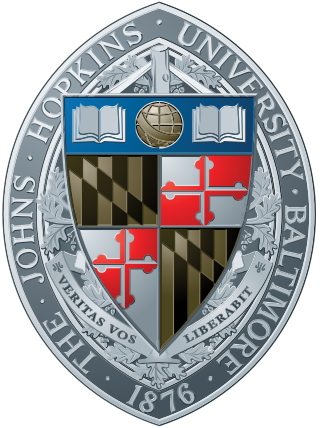
Johns Hopkins University is a private research university in Baltimore, Maryland. Founded in 1876, Johns Hopkins was the first U.S. university based on the European research institution model.
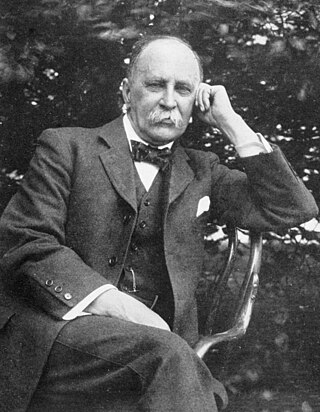
Sir William Osler, 1st Baronet, was a Canadian physician and one of the "Big Four" founding professors of Johns Hopkins Hospital. Osler created the first residency program for specialty training of physicians, and he was the first to bring medical students out of the lecture hall for bedside clinical training. He has frequently been described as the Father of Modern Medicine and one of the "greatest diagnosticians ever to wield a stethoscope". Osler was a person of many interests, who in addition to being a physician, was a bibliophile, historian, author, and renowned practical joker. Outside of medicine, he was passionate about medical libraries and medical history and among his achievements were the founding of the History of Medicine Society, at the Royal Society of Medicine, London. In the field of librarianship he was instrumental in founding the Medical Library Association of Great Britain and Ireland, the Association of Medical Librarians with three others, including Margaret Charlton, the medical librarian of his alma mater, McGill University. He left his large history of medicine library to McGill, where it continues to exist as the Osler Library.

The Johns Hopkins Hospital (JHH) is the teaching hospital and biomedical research facility of the Johns Hopkins School of Medicine, located in Baltimore, Maryland. It was founded in 1889 using money from a bequest of over $7 million by city merchant, banker/financier, civic leader and philanthropist Johns Hopkins (1795–1873). Johns Hopkins Hospital and its school of medicine are considered to be the founding institutions of modern American medicine and the birthplace of numerous famous medical traditions including rounds, residents and house staff. Many medical specialties were formed at the hospital including neurosurgery, by Harvey Cushing and Walter Dandy; cardiac surgery by Alfred Blalock; and child psychiatry, by Leo Kanner. Attached to the hospital is the Johns Hopkins Children's Center which serves infants, children, teens, and young adults aged 0–21.

The Rockefeller University is a private biomedical research and graduate-only university in New York City, New York. It focuses primarily on the biological and medical sciences and provides doctoral and postdoctoral education. It is classified among "R2: Doctoral Universities – High research activity." Rockefeller is the oldest biomedical research institute in the United States.
Online Mendelian Inheritance in Man (OMIM) is a continuously updated catalog of human genes and genetic disorders and traits, with a particular focus on the gene-phenotype relationship. As of 28 June 2019, approximately 9,000 of the over 25,000 entries in OMIM represented phenotypes; the rest represented genes, many of which were related to known phenotypes.
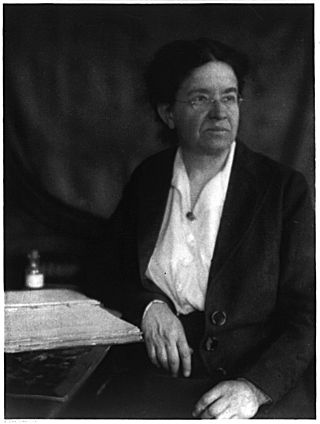
Florence Rena Sabin was an American medical scientist. She was a pioneer for women in science; she was the first woman to hold a full professorship at Johns Hopkins School of Medicine, the first woman elected to the National Academy of Sciences, and the first woman to head a department at the Rockefeller Institute for Medical Research. During her years of retirement, she pursued a second career as a public health activist in Colorado, and in 1951 received the Albert Lasker Public Service Award for this work.
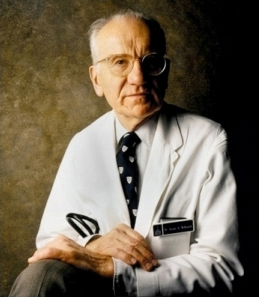
Victor Almon McKusick was an American internist and medical geneticist, and Professor of Medicine at the Johns Hopkins Hospital, Baltimore. He was a proponent of the mapping of the human genome due to its use for studying congenital diseases. He is well known for his studies of the Amish. He was the original author and, until his death, remained chief editor of Mendelian Inheritance in Man (MIM) and its online counterpart Online Mendelian Inheritance in Man (OMIM). He is widely known as the "father of medical genetics".

Daniel Nathans was an American microbiologist. He shared the 1978 Nobel Prize in Physiology or Medicine for the discovery of restriction enzymes and their application in restriction mapping.

The Johns Hopkins Bloomberg School of Public Health is the public health graduate school of Johns Hopkins University, a private research university in Baltimore, Maryland. As the second independent, degree-granting institution for research in epidemiology and training in public health, and the largest public health training facility in the United States, the school is ranked first in public health in the U.S. News & World Report rankings and has held that ranking since 1994. The school is ranked second for public health in the world by the Shanghai Rankings.

The Johns Hopkins University School of Medicine (JHUSOM) is the medical school of Johns Hopkins University, a private research university in Baltimore, Maryland, United States. Founded in 1893, the School of Medicine shares a campus with the Johns Hopkins Hospital and Johns Hopkins Children's Center, established in 1889. It has consistently ranked among the top medical schools in the United States in terms of the number/amount of research grants/funding awarded by the National Institutes of Health, among other measures.

William Henry Welch was an American physician, pathologist, bacteriologist, and medical-school administrator. He was one of the "Big Four" founding professors at the Johns Hopkins Hospital. He was the first dean of the Johns Hopkins School of Medicine and was also the founder of the Johns Hopkins School of Hygiene and Public Health, the first school of public health in the country. Welch was more known for his cogent summations of current scientific work, than his own scientific research. The Johns Hopkins medical school library is also named after Welch. In his lifetime, he was called the "Dean of American Medicine" and received various awards and honors throughout his lifetime and posthumously.
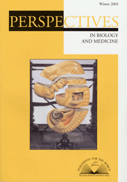
Perspectives in Biology and Medicine is a peer-reviewed academic journal established in 1957. It publishes essays that explore biology and medicine in relation to their place in society. Authors write informally, presenting their "perspectives" as the title suggests. Topics covered are sometimes explicitly scientific, but might also extend into areas of philosophy, history, pedagogy, and medical practice. The journal is published quarterly by the Johns Hopkins University Press.

Journal of Experimental Medicine is a monthly peer-reviewed medical journal published by Rockefeller University Press that publishes research papers and commentaries on the physiological, pathological, and molecular mechanisms that encompass the host response to disease. The journal prioritizes studies on intact organisms and has made a commitment to publishing studies on human subjects. Topics covered include immunology, inflammation, infectious disease, hematopoiesis, cancer, stem cells and vascular biology. The journal has no single editor-in-chief, but thirteen academic editors.

Johns Hopkins All Children's Hospital, formerly All Children's Hospital, is a pediatric acute care children's hospital located in St. Petersburg, Florida. The hospital has 259 beds and is affiliated with the USF Morsani College of Medicine and Johns Hopkins University School of Medicine. The hospital provides comprehensive pediatric specialties and subspecialties to pediatric patients aged 0–21 throughout western Florida. Johns Hopkins All Children's Hospital also features a Level 2 Pediatric Trauma Center.
Paul Rodney McHugh is an American psychiatrist, researcher, and educator. He is currently the University Distinguished Service Professor of Psychiatry at the Johns Hopkins University School of Medicine and the author, co-author, or editor of seven books in his field. McHugh is a vocal proponent of Catholic-informed and socially conservative stances relating to sexual orientation and transgender people. Several Johns Hopkins staffers and geneticists Dean Hammer accused McHugh of misrepresenting scientific research relating to sexual orientation.

The Journal of Autism and Developmental Disorders is a monthly peer-reviewed medical journal covering research on all aspects of autism spectrum disorders and related developmental disabilities. The journal was established in 1971 as the Journal of Autism and Childhood Schizophrenia, obtaining its current title in 1979. It is published by Springer Science+Business Media and the editor-in-chief is Lynn Kern Koegel.
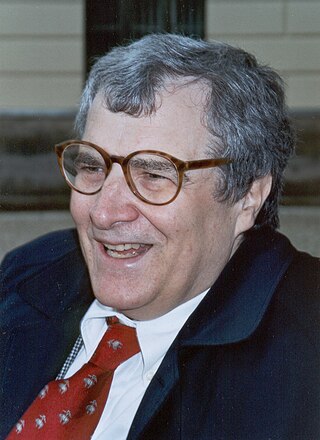
Steven Lehrer is a physician and writer, known for medical research and for his English translation of Else Ury.
Thomas A. LaVeist is dean and Weatherhead Presidential Chair at the School of Public Health and Tropical Medicine at Tulane University in New Orleans, Louisiana. He was previously chairman of the Department of Health Policy and Management at the George Washington University, Milken Institute School of Public Health. He focuses mainly on the development of policy and interventions to address race disparities in the health field.
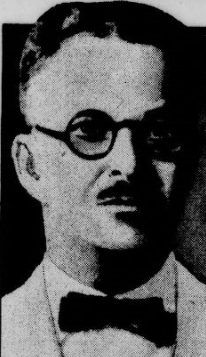
George Argale Harrop was an American physician, nutritionist and writer.
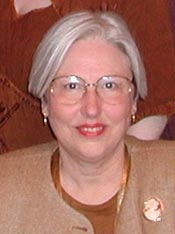
Victoria Angela Harden is an American medical historian who was the founding director of the Office of NIH History and the Stetten Museum at the National Institutes of Health. Most known for organizing conferences and publishing works on the history of HIV/AIDS, Harden also authored books on the history of the NIH and Rocky Mountain spotted fever. She is a past president of the Society for History in the Federal Government.

















